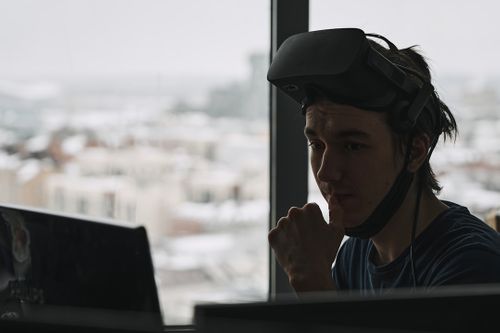Virtual Reality: Beyond the Hype
Jul 09, 2024 · 2 mins read
0
Share

We often think of virtual reality (VR) as a futuristic concept, but its roots run deep, all the way back to the 19th century with panoramic paintings that immersed viewers in new worlds.
Save
Share
Today, VR is transforming industries beyond gaming. Surgeons use it for pre-operative planning, architects for immersive walkthroughs, and even therapists for treating phobias.
Save
Share
One of the most exciting applications of VR is in education. Imagine students exploring the pyramids of Egypt or the Amazon rainforest, all from their classrooms.
Save
Share
VR has the potential to democratize experiences, making the inaccessible accessible. Want to climb Mount Everest or walk on the moon? VR can take you there.
Save
Share
But VR isn't just about escapism. It can foster empathy by allowing us to step into someone else's shoes, experiencing the world from their perspective.
Save
Share
Think of the possibilities in journalism. VR can transport viewers to the heart of a story, providing a level of immersion and understanding that traditional media can't match.
Save
Share
The future of VR lies in its ability to blur the lines between the physical and digital. Imagine attending a concert or a sporting event virtually, feeling like you're actually there.
Save
Share
As VR technology continues to evolve, we can expect even more innovative and transformative applications to emerge, impacting our lives in ways we can only imagine.
Save
Share
The key to unlocking the full potential of VR lies in collaboration. Developers, educators, artists, and policymakers need to work together to create ethical and impactful experiences.
Save
Share
So, the next time you hear about VR, don't just think of it as a gaming gadget. It's a powerful tool with the potential to revolutionize the way we learn, work, and interact with the world around us.
Save
Share
0